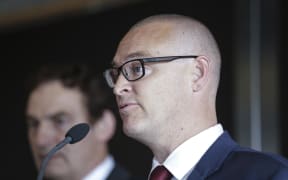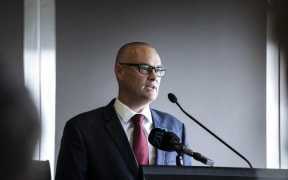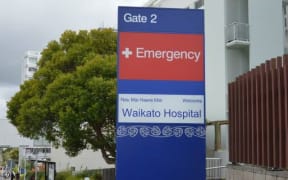Waikato DHB's board faces being sacked, but while members, senior doctors and the chair disagree over some concerns they warn underfunding is the culprit behind their financial woes.
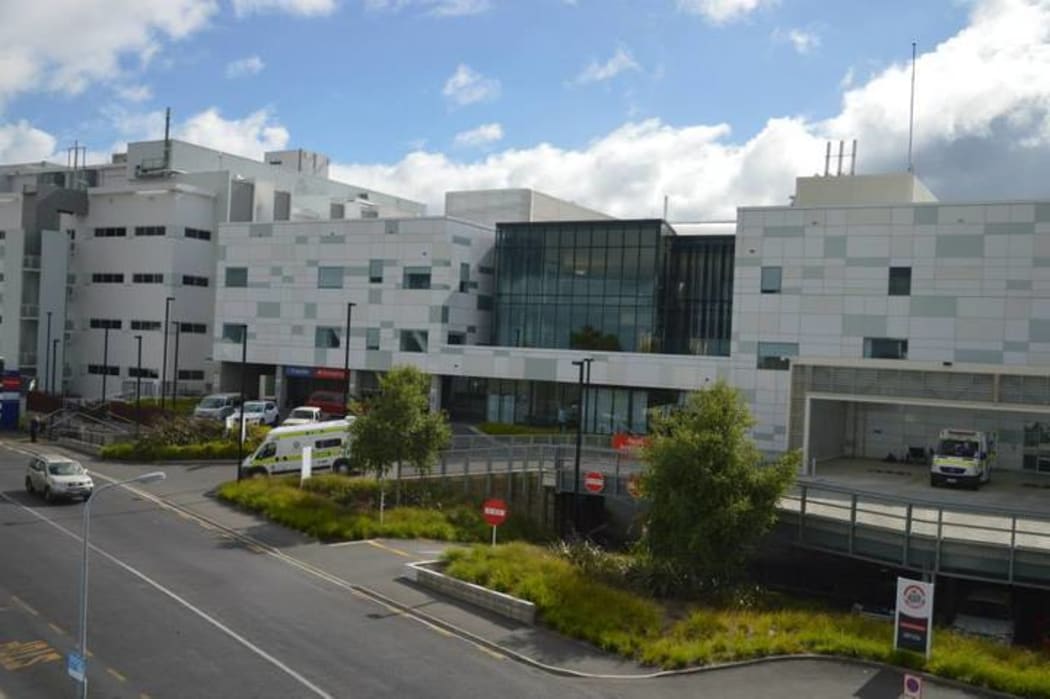
Photo: Supplied / Facebook
Health Minister David Clark has issued a letter to the DHB warning them to solve a variety of problems - largely focused on poor governance and finances.
The board has until 3 May to respond to the letter or the minister has said he would sack the board and appoint a commissioner instead.
It's a somewhat extreme measure, but it has been done in the past: Southern District Health Board is currently being managed by a commissioner and Hawke's Bay faced the same situation about a decade ago.
Before they've met to even discuss the letter, board members and the chair already disagree over what is causing some of their woes.
Appointing a Commissioner
DHB chair Sally Webb
Waikato DHB's chair Sally Webb backs the appointment of a commissioner, telling Checkpoint last night the board had failed to provide focused leadership.
"I believe that it's my role as chair to be able to assure the minister that I can provide focused leadership for the organisation and I've been unable to do that. So yes, I guess we would call it game over.
"I've talked to the ... minister about the advantages of having a commissioner, yes. And personally I believe the appointment of a commissioner is the right move to ensure that Waikato District Health Board has the trusted, focused leadership it needs to address the challenges it faces.
"I think you will be aware that this board has had a lot of public disagreement which has been present about a number of issues for the term of at least this board and that undermines trust and confidence in the board.
"I think it's really important that the board has the opportunity to respond to the letter and in that response we will then outline the way forward."
Dave MacPherson
DHB board member Dave MacPherson disagreed. He said many of the problems Dr Clark identified were "old stories from the last board when we had Nigel Murray and that sort of thing happening".
"It's no solution putting in a commissioner ... the emergency department waiting time, that's being well addressed at the moment and for the last over two months the targets are being met.
He said the chair's support for a commissioner was self-interested.
"Because she's already told the board she's not standing again at the end of the year. She's got no interest personally in the board continuing, she's appointed by the minister to do the minister's job and I'm very sceptical of her claims that she's even represented our views."
Senior doctors representative Ian Powell
The head of the Association of Salaried Medical Specialists Ian Powell, who is representing senior doctors at the DHB, said he agreed with appointing a commissioner.
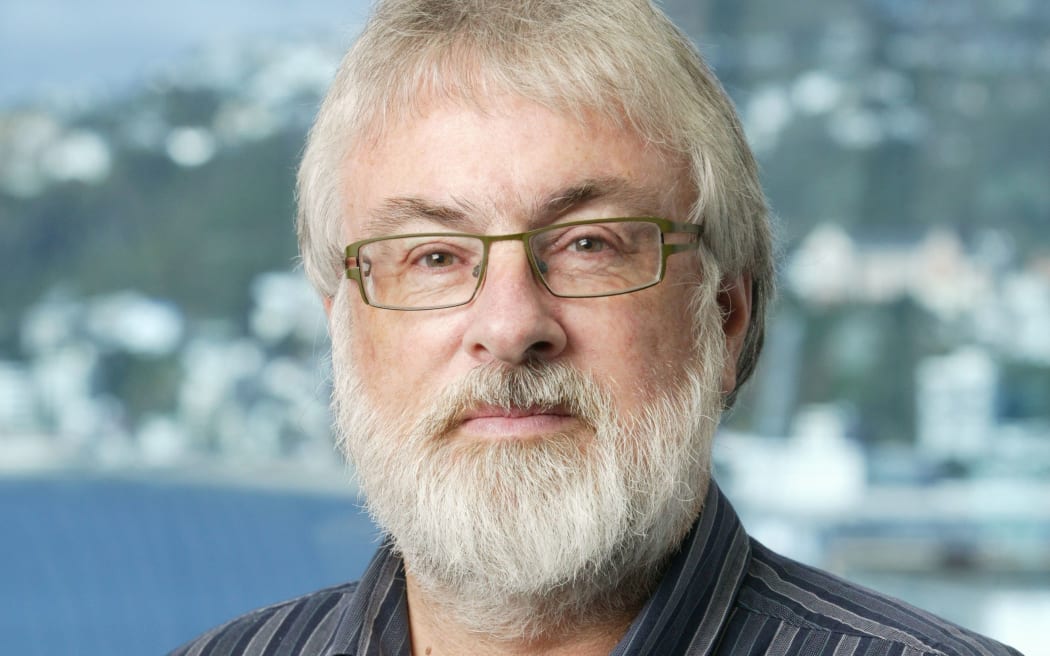
Association of Salaried Medical Specialists Executive Director Ian Powell. Photo: Supplied
"I was expecting a decision earlier, but I understand the reason for that ... they have to actually amend the legislation - and the reason for that is, you can only appoint a commissioner up until the period of the next elections, which is in October this year."
Board member Mary-Anne Gill
Another Board member, Mary-Anne Gill, said instead of appointing a commissioner, Dr Clark should solve the wider problems with the DHB system as a whole.
"I'm certainly on record as saying I don't agree with the current DHB system in New Zealand. I think there are too many DHBs and I think the current mix of elected and appointed board members across the country is not working.
"I think he should be looking at the system and looking at the ways that the DHBs are delivering the services.
"I had thought that when the review by Heather Simpson was commissioned that the minister might actually delay DHB board elections anyway pending her review coming out."
Problems appointing a chief executive
There was also disagreement over what caused the problems with appointing a new permanent chief executive following the resignation of previous chief executive Nigel Murray, during an investigation into his spending of board funds.
An interim chief executive Derek Wright - who has had wide support - is set to leave at the end of April, and the board decided in February to put its recruitment process on hold.
Senior doctors representative, Ian Powell:
"That actually got to the point of having perhaps four shortlisted applicants, one on one withdrew that was the interim chief executive, and what sits behind that is a high level of frustration about the prospect of an incoming chief executive having to cope with a with a dysfunctional board."
He said it was fairly well known that the interim chief executive was one of the applicants, but he pulled out for personal reasons.
"It's not a reflection on the interim chief executive there at the moment who's generally recognised as doing a very good job.
"They had one functioning very well for a shorter time, but that was always a short term solution."
He said he thought the chief executive process would depend on who was appointed to the Commissioner's role, should that happen. He also suggested that rumours about poor governance were also to blame.
"The prime loyalty is in fact to patients ... having said that these obstructions - or rather the the poor leadership culture that's been there for some time - is certainly an impediment. It's an impediment makes recruitment more difficult, and it does make people consider their options."
Board member Dave MacPherson:
Mr MacPherson said the delay was caused by the DHB's decision to overturn the Coroner's findings into the death of his son Nicky, who died while in compulsory mental health care at the DHB in 2015.
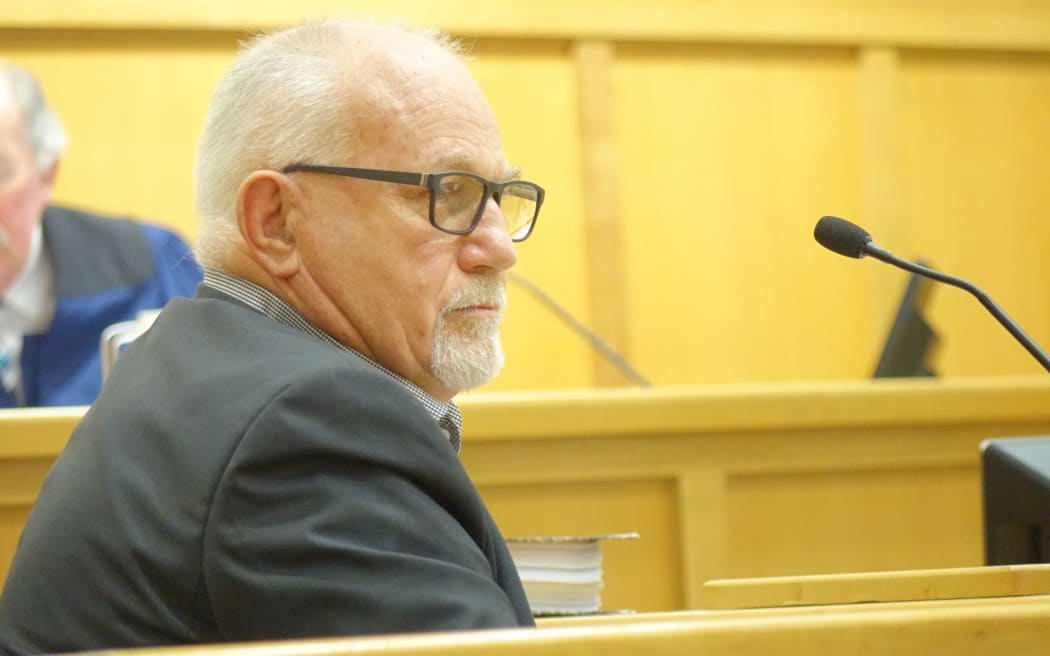
Dave Macpherson at the Coroner's hearing over his son's death. Photo: RNZ / Andrew McRae
"Sally Webb herself, not the board, when they decided foolishly - in my personal opinion - to try and overturn the Coroner's findings into my son's death.
"The bad publicity from that was right in the middle of the CEO appointment process. A number of candidates withdrew their applications to the board and they were left without suitable applicants at that time.
"To start with ... we had about 25 to 30 high-quality applicants from all across the country; from Australia, so I don't think there's a shortage of people interested in working for us."
"It was bad timing and one particular poor decision that the board had no part in."
DHB chair Sally Webb:
Ms Webb insisted it was a problem of not enough candidates wanting to apply. She also said the delay occurred when at least one candidate withdrew for personal reasons.
"That was a process that happened back in February ... and a candidate withdrew, yes. Why? I'm not going to discuss that in public."
"That was all fully discussed at the time ... and I don't see any point in dragging that all up again. There are a number of contributing factors and I don't think it would be a surprise to anyone that Waikato District Health Board has been a board under stress for a time."
RNZ sought comment from Ms Webb over Mr MacPherson's accusations but she had not yet responded.
DHB board member Mary-anne Gill:
Despite Ms Webb's assertions the reasons behind the failure of the process had been covered, however, DHB board member Mary-anne Gill was still in the dark.
"I don't know why we stopped the process other than we had challenges, but we did have some very high calibre people apply, and I just applaud those that did apply."
She said the DHB was a target because they had "stuck our heads up".
"We've had some other issues that have been going on that the minister's been aware of.
"I think that we've had some issues around another board member was around mental health, and that's been well canvassed."
Financial difficulties
The board members and senior doctors all seemed to agree that the DHB was underfunded, however.
Mary-anne Gill
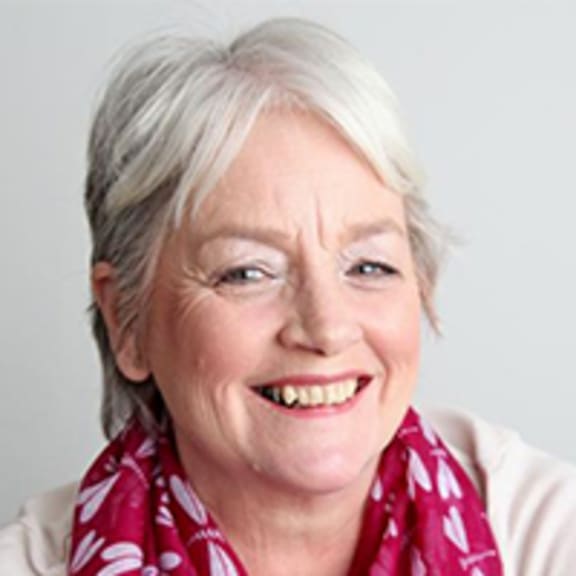
Mary-Anne Gill Photo: Waikato DHB
"That's the cost of providing quality health care to the people of the Waikato DHB, and one of the things we've been doing is addressing the real inequities that exist in our population, particularly among Māori and people in rural areas.
"You know who I'm feeling for tonight? I'm feeling for the 7500 staff at Waikato DHB that go to work every day and provide outstanding care. They didn't ask for any of this, they've just been getting on with the job and more power to them.
"Part of me says 'well the system's broken anyway', the other part of me says it's a real shame Waikato DHB is the one that's been called out at this point in time.
"We take responsibility, and I wouldn't call it a blowout, we've actually called the Ministry of Health in last year, and they've been working alongside us in the DHB to take us through the situation. So no, I would not call it a blowout, I would call it 'we are trying desperately to provide care for the people of the Waikato DHB region as best we can'."
Dave MacPherson:
"I absolutely think he [the minister, Dr Clark] needs to step in and do something, not just about our deficit, about the deficits being faced by DHBs all around the country, a total of around $300 million combined.
"It is a problem, the fact is that we're being funded at 2013 levels basically for 2019 and 2020, and there is simply not enough money in the facility ... to run the services.
"I challenged the minister and the ministry to say 'what services should be cut to meet your financial targets. He himself criticised the last government for not providing enough funding - quite correctly - but that has not yet been properly addressed and we're using old funding formulas in high population growth times.
"We're being asked to do, as is every other DHB, more with less. And you can only get so much blood out of a stone."
Sally Webb:
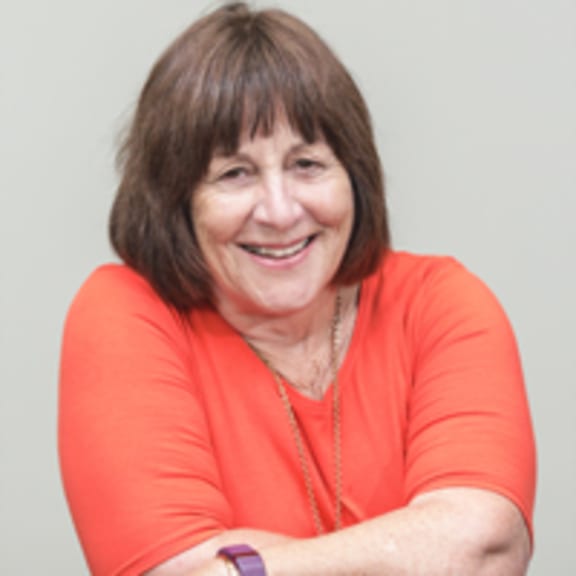
Waikato DHB chair Sally Webb Photo: Waikato DHB
"The money is going on the provision of services and we're not the only DHB that is in financial difficulties but what we need in Waikato District Health Board is actual focused governance that can support management to implement a plan to make the org sustainable.
"We've been doing some work on it, please don't think this board hasn't been doing any work. We have been having work around our financial sustainability and doing some significant work there but we need to actually have that carried out further and implemented more.
"It's not a simplistic answer to say there's a primary reason for it. It is about the cost of providing services, it's about looking at patient flow through the hospital. It's about looking at how we relate with primary care and move services in the community. There's a wide range of issues."
Ian Powell:
"My broad premise is that basically what makes good clinical sense also makes good financial sense. What is very different as what makes bad clinical sense will definitely make bad financial sense.
"Somebody with strong clinical skills and an approach to an engagement with doctors and other health professionals would make the world of difference."
He said he believed that the strange things that were said to have been happening to allow DHBs to meet financial targets had stopped about a year ago.
"I think this current government has de-emphasised the targets. Well, not necessarily gone, but they're less significant and they're not being monitored in the same way and they're not being rigidly applied because the targets were never an indicator of good performance."
Possibility of a seconded chief executive from the Ministry
Dave MacPherson said the board had asked for the Ministry of Health to provide another interim chief executive, but Mr Powell disagrees that would be a feasible option, though he allowed that the current crown monitor of the DHB could be appointed to the role.
Dave MacPherson:
"We've suggested to the minister to help us at the moment because we're having trouble finding a ceo that the ministry second an experienced official to us to work in that capacity for several months until we can get a new CEO on board.
"That hasn't even been put before the ministry as far as we're aware.
"The chair wasn't even at our previous meeting where we discussed the best thing to do in this circumstance. There was as a suggestion from a single board member that we resign on masse and that was rejected by the rest of the board and we said no, we'd rather have some support right now and have this person seconded to us than to go to that sort of extreme.
"It's no solution putting in a commissioner ... the emergency department waiting time, that's being well addressed at the moment and for the last over two months the targets are being met."
Ian Powell:
"No, it's not feasible. There'd be no one in the ministry - and that's not being derogatory ... the only person with that level of experience at the moment is the current director general of health and he wouldn't be seconded."
